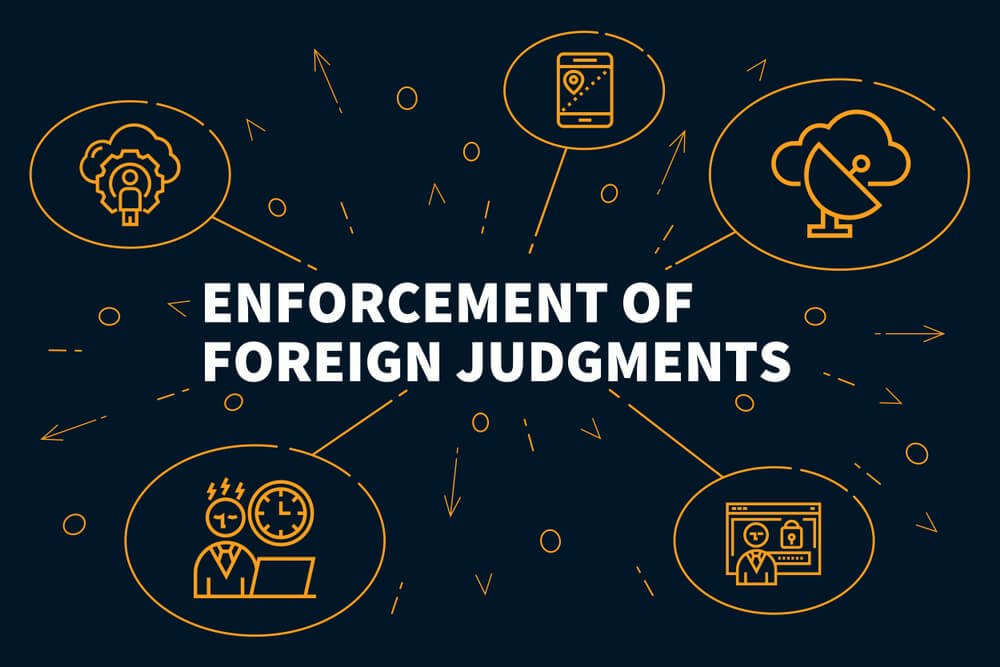

In our increasingly globalised world, cross-border legal issues are becoming more common. One such issue is the enforcement of foreign judgments, particularly those from China, in the United Kingdom. Understanding the legal framework and procedural steps involved is crucial for businesses and individuals seeking to enforce Chinese judgments in the UK.
The Legal Framework for Enforcing Foreign Judgments in the UK
Unlike some jurisdictions that have specific treaties or agreements facilitating the mutual recognition and enforcement of judgments, the UK and China do not have such an arrangement. Therefore, the enforcement of a Chinese judgment in the UK is governed by common law principles.
Under the English common law, where a foreign court of competent jurisdiction has determined that a certain sum is due from one person to another, a legal obligation arises on the defendant to pay that sum. The claimant may bring a claim in the UK to enforce that obligation as a debt. The claim should be initiated by way of fresh proceedings in the UK for a debt, with the unsatisfied Chinese judgment serving as the cause of action.
The creditor can apply for a summary judgment to expedite the process if the debtor has no real prospect of successfully defending the claim.
Key Principles of Common Law Enforcement
Under UK common law, a foreign judgment can be enforced if it meets certain criteria:
- Final and Conclusive: The judgment must be final and conclusive in the foreign court Jurisdiction: The foreign court must have had jurisdiction according to UK conflict of law rules.
- Public Policy: The enforcement of the judgment must not be contrary to UK public policy.
- Definitive Sum: The judgment must be for a definite sum of money.
- Due Process: The judgment must have been obtained through a process that respects the principles of natural justice, meaning the defendant had a fair opportunity to present their case.
Steps to Enforce a Chinese Judgment in the UK
- Obtain a Certified Copy of the Judgment: Start by obtaining a certified copy of the Chinese judgment, along with an official translation if necessary.
- Issue a Claim Form in the UK: File a claim in the appropriate UK court, typically the Commercial Court of the High Court of Justice, seeking recognition and enforcement of the Chinese judgment.
- Serve the Defendant: The defendant must be served with the claim form and supporting documents. This can usually be done through personal service or other methods approved by the court.
- Court Hearing: The court will review the case to ensure the Chinese judgment meets all the criteria for enforcement under UK law. The defendant has the right to contest the enforcement on several grounds, including lack of jurisdiction, fraud, or public policy issues.
- Judgment Registration: If the court is satisfied that the judgment should be enforced, it will issue an order registering the Chinese judgment as a UK judgment.
- Execution of the Judgment: Once registered, the judgment can be executed in the same manner as any domestic UK judgment. This may involve seizing assets, applying for a charging order, or other enforcement methods available in the UK.
It may also be necessary to apply for a freezing injunction which is a powerful tool used to prevent the judgment debtor from dissipating assets to frustrate enforcement in the UK. The freezing injunction in this context aims to preserve the debtor’s assets within this jurisdiction to ensure they remain available to satisfy the reciprocal judgment obtained in the UK.
Challenges and Considerations
- Jurisdictional Challenges: One of the primary challenges in enforcing a Chinese judgment in the UK is proving that the Chinese court had proper jurisdiction. The UK court will assess whether the Chinese court’s jurisdiction aligns with UK conflict of law principles.
- Public Policy and Natural Justice: The UK court will not enforce a judgment that is contrary to UK public policy or was obtained in a manner that violates natural justice principles. This includes ensuring that the defendant was given a fair trial and proper notice of the proceedings.
- Reciprocity Issues: Although there is no formal reciprocity agreement between China and the UK, courts may still consider whether there is a general spirit of reciprocity between the two countries, although this is not a strict requirement under common law.
Conclusion
Enforcing a Chinese judgment in the UK is a complex process, requiring careful navigation of both legal systems. Understanding the criteria and procedural steps involved is essential for a successful outcome. For businesses and individuals facing the challenge of enforcing Chinese judgments in the UK, seeking expert legal advice is crucial. With the right guidance, the complexities of cross-border enforcement of judgments can be effectively managed, ensuring that legal rights are upheld and financial interests are protected.
How we can help?
At TV Edwards we have significant experience in respect of enforcing foreign judgments in the UK from China and other international jurisdictions so please get in touch should you need any legal assistance using the details provided below. Contact Partner Adam Haffenden from the Disputes Resolution team on 0203 440 8139 or email adam.haffenden@tvedwards.com.
Disclaimer: The information on the TV Edwards website is for general information only and reflects the position at the date of publication.








